If you’re a cat lover, then you’ve definitely heard of Persian cats. These furry felines are known for their stunning looks and luxurious coats, but there’s one question that still lingers: Are Persian cats aggressive?
Well, let’s dive into the topic and find out!
Lets explore the personality traits of Persian cats. These cats are generally known to be calm and relaxed. They enjoy lounging around and being pampered by their owners.
However, just like any other cat breed, they do have their moments of playfulness and curiosity.
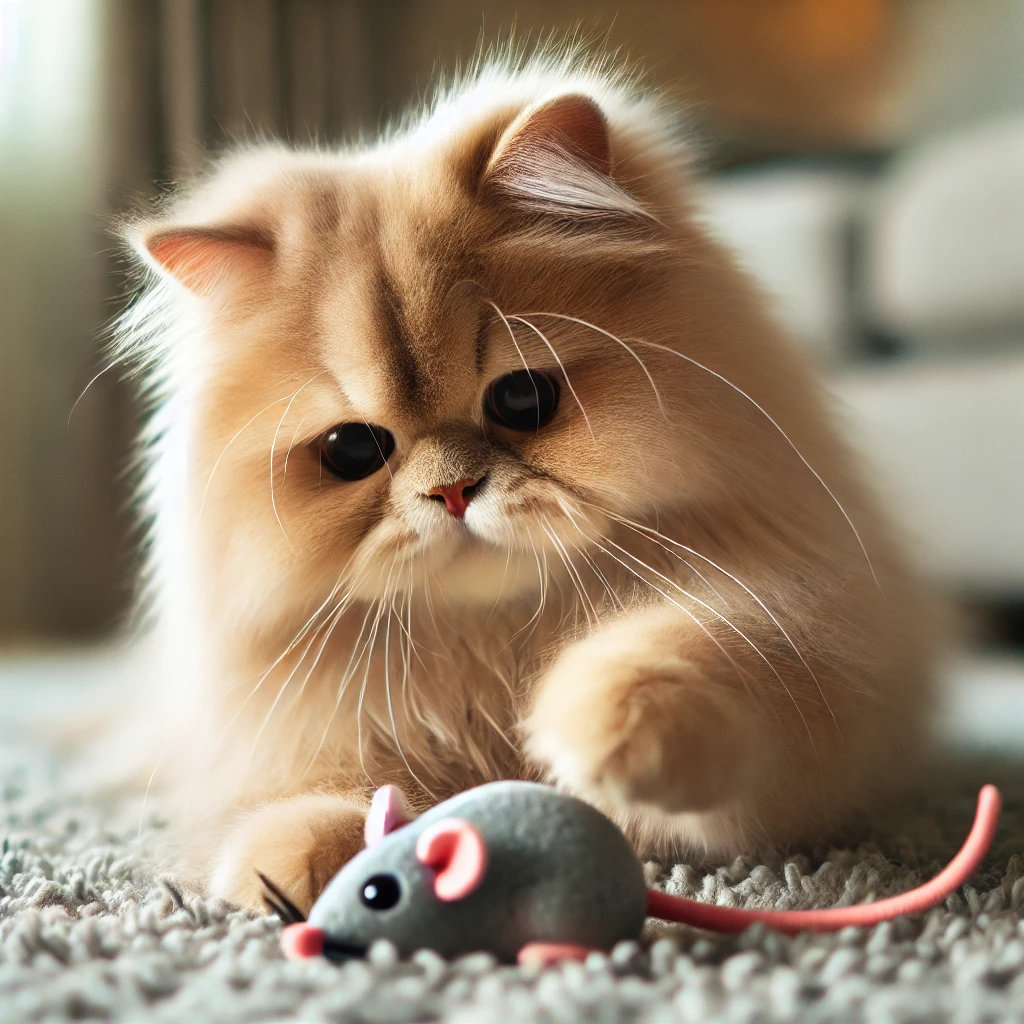
Are Persian Cats Aggressive?
No. Persian cats are usually not aggressive. Persian cats have a reputation for being lap cats who love nothing more than cuddling up with their owners on the couch.
They are generally very docile and easy-going pets who get along well with children and other animals.
However, like any animal, Persian cats can become aggressive if they feel threatened or scared.
If a Persian cat is cornered or feels like it is in danger, it may lash out in self-defence. This can result in scratching or biting.
It is important to note that aggression in Persian cats is not common and usually only occurs when they feel threatened or uncomfortable in their environment.
As long as they feel safe and secure, they will remain calm and friendly.
Another factor that can contribute to aggression in Persian cats is improper socialization during kittenhood.
If a kitten does not receive enough human interaction during its early months of life, it may become fearful of people later on. This fear can manifest as aggression towards humans.
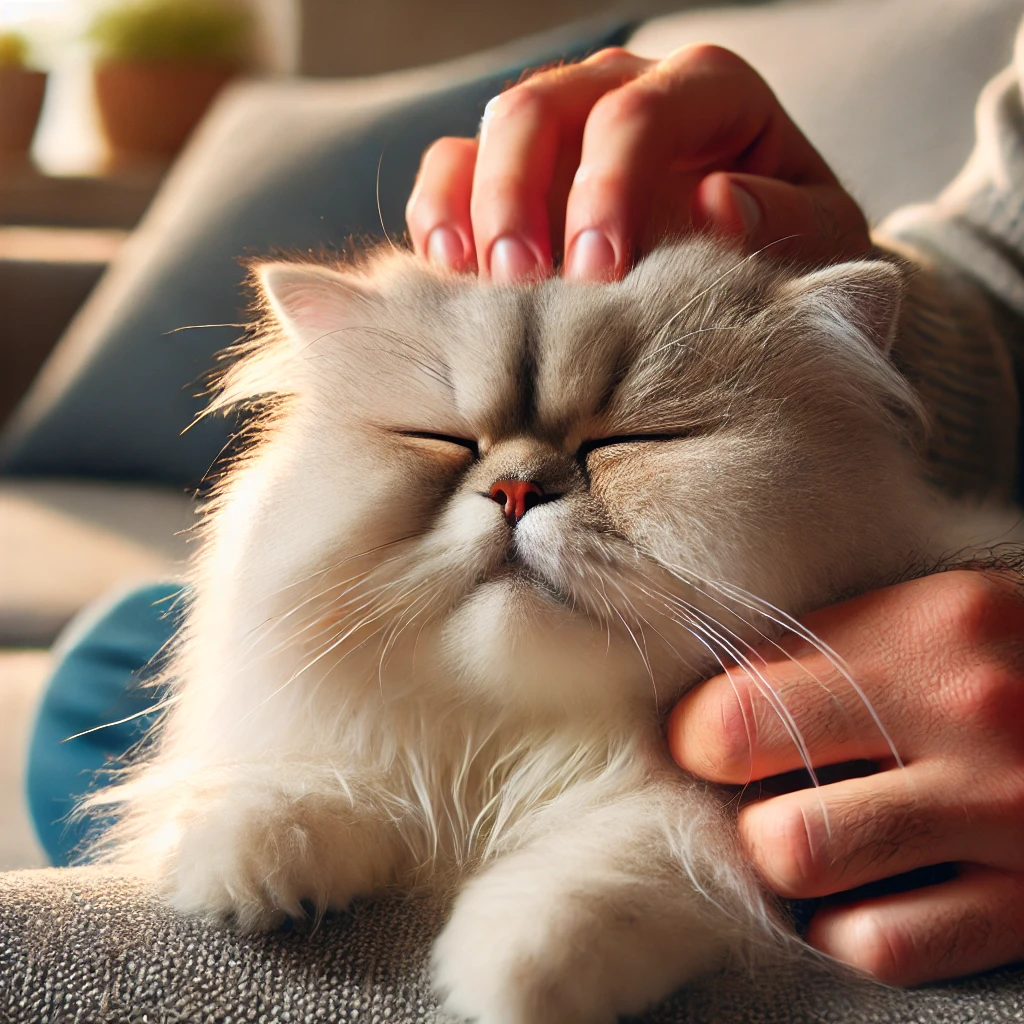
Personality Traits Of Persian Cats
When it comes to personality traits, Persian cats are known for their calm and gentle nature. They are often described as being docile, affectionate, and playful.
These traits make them great pets for families with children or other animals.
Persian cats are also known for their intelligence and curiosity. They love to explore their surroundings and will often spend hours playing with toys or investigating new objects.
Despite their gentle nature, some people believe that Persian cats can be aggressive. However, this is not typically the case.
While all cats have the potential to become aggressive if they feel threatened or provoked, Persian cats are not more likely to exhibit this behavior than any other breed.
In fact, one of the reasons why Persian cats are so popular as pets is because of their laid-back personalities. They do not require a lot of exercise or stimulation and are content spending most of their time lounging around the house.
This makes them ideal pets for people who live in apartments or small homes.

Another trait that sets Persian cats apart from other breeds is their affectionate nature. They love nothing more than curling up on your lap and purring contentedly while you stroke their fur. This makes them great companions for people who enjoy spending quiet evenings at home.
Finally, it’s worth noting that while Persian cats can be stubborn at times (as all felines can be), they respond well to positive reinforcement training techniques such as clicker training or treats-based rewards systems.
When it comes to personality traits, Persian cats have a lot going for them. Their calm and gentle nature makes them great pets for families with children or other animals, while their intelligence and curiosity make them fun companions for people who enjoy interactive playtime with their furry friends.
And despite rumours to the contrary, there is no evidence to suggest that Persian cats are any more aggressive than any other breed of cat – in fact, quite the opposite!
So if you’re considering adding a furry friend to your household, a Persian cat could be just the companion you’re looking for.
Click Here To Know More About: 👉🏻👉🏻👉🏻Are Persian Cats Friendly?
Misconceptions About Persian Cat Behavior
Let’s get one thing straight – Persian cats are not aggressive by nature. One of the most common misconceptions about these fluffy felines is that they are mean and prone to biting or scratching their owners. This couldn’t be further from the truth.
In fact, Persian cats are known for their calm and affectionate personalities.
One reason why some people may think that Persian cats are aggressive is because of their long, thick fur. These cats require frequent grooming to prevent matting and tangles, which can be uncomfortable for them.
If a Persian cat is not used to being groomed regularly, it may become agitated or defensive when someone tries to brush or comb them.
Another misconception about Persian cat behaviour is that they are high-maintenance pets who demand constant attention from their owners.
While it’s true that these cats enjoy spending time with their humans, they are also content to entertain themselves for hours on end.
Persians have a reputation for being lazy couch potatoes who love nothing more than lounging around the house all day.
Some people also believe that Persian cats don’t like children or other pets in the household. Again, this is simply not true. Persians can be great family pets and get along well with kids and other animals if they are socialized properly from a young age.
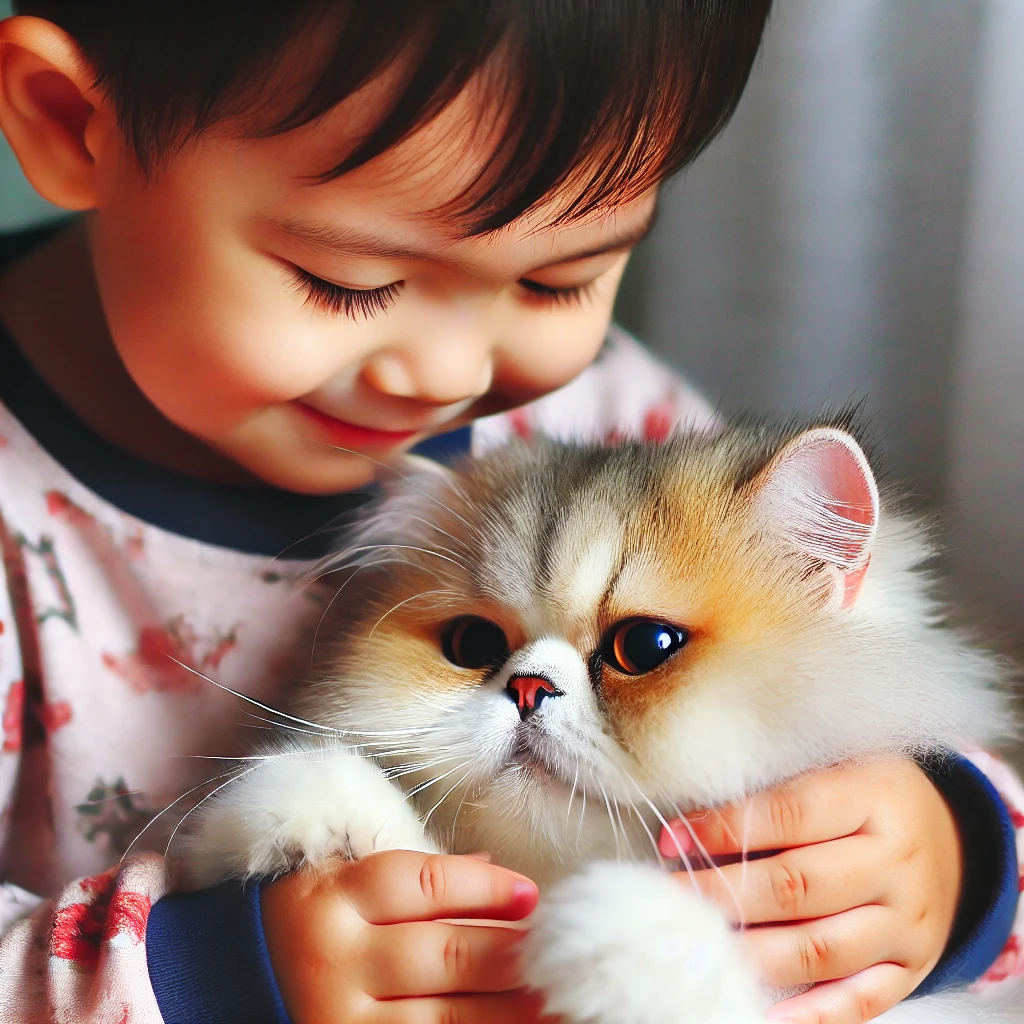
It’s important to introduce your cat slowly and carefully to new people and pets in order to avoid any potential conflicts.
Finally, some people assume that all purebred cats – including Persians – have health problems due to inbreeding or genetic defects.
While it’s true that some breeds of cat may be more prone to certain health issues than others, this does not mean that all purebred cats will develop problems later in life.
With proper care and regular check-ups from a veterinarian, your Persian cat can live a happy and healthy life just like any other pet. There are many misconceptions about Persian cat behaviour that simply aren’t true.
These cats are not aggressive, high-maintenance, or unfriendly towards children and other pets.
9 reasons why your Persian cat is acting aggressive
Persian cats are known for their calm and docile nature, but sometimes they can exhibit aggressive behaviour. If your Persian cat is acting aggressively, it can be a cause of concern for you as an owner.
Here is a list of nine reasons why your Persian cat may be acting aggressively.
1. Health Issues
The first reason why your Persian cat may be acting aggressively is due to health issues. Cats are masters at hiding pain and discomfort, so if they are feeling unwell, they may become irritable and lash out.
Some common health issues that can cause aggression in cats include dental problems, urinary tract infections, and arthritis.
2. Fear or Anxiety
Cats can become fearful or anxious in certain situations, which can lead to aggressive behavior. For example, if your Persian cat is afraid of loud noises like thunderstorms or fireworks, it may become aggressive when exposed to these stimuli.
Similarly, if your cat feels threatened by other animals or people in the household, it may act out aggressively.
3. Territory Issues
Persian cats are territorial animals and can become aggressive when their territory is threatened. This could happen if you introduce a new pet into the household or move to a new home with unfamiliar surroundings.
Your Persian cat may feel like their territory is being invaded and act out aggressively as a result.
4. Lack of Socialization
If your Persian cat was not properly socialized as a kitten, it may have trouble interacting with other animals or people later on in life.
This lack of socialization could lead to fear or anxiety around others which could result in aggression towards them.
5. Play Aggression
Sometimes cats play too rough with each other which can lead to aggression towards humans who try to intervene in their playtime activities.
If you notice that your Persian cat becomes aggressive during playtime with you or other pets in the household it could be because they don’t know how to control themselves during play.
6. Hormonal Changes
Hormonal changes can also cause aggression in Persian cats. If your cat is not spayed or neutered, it may become aggressive during mating season. This aggression can be directed towards other animals or people in the household.
7. Pain or Discomfort
If your Persian cat is experiencing pain or discomfort, it may become aggressive as a way to protect itself from further harm. For example, if your cat has an injury that is causing them pain, it may lash out when you try to touch the affected area.
8. Aging
As Persian cats age, they may become more irritable and less tolerant of certain situations which could lead to aggression towards others. This could be due to a variety of factors such as decreased mobility or sensory decline.
9. Lack of Stimulation
Lastly, if your Persian cat is not getting enough stimulation in their daily life, they may become bored and act out aggressively as a way to entertain themselves.
Providing your cat with toys and activities that stimulate its mind and body can help prevent this type of behaviour.
As an owner, it’s important to identify the underlying cause of your cat’s aggression so that you can take appropriate steps to address the issue and prevent future incidents from occurring.
If you’re unsure why your Persian cat is acting aggressively it’s always best to consult with a veterinarian who can help diagnose any underlying health issues that could be contributing to the behavior.
With patience and understanding, you can help your Persian cat overcome their aggressive tendencies and live a happy healthy life alongside you!
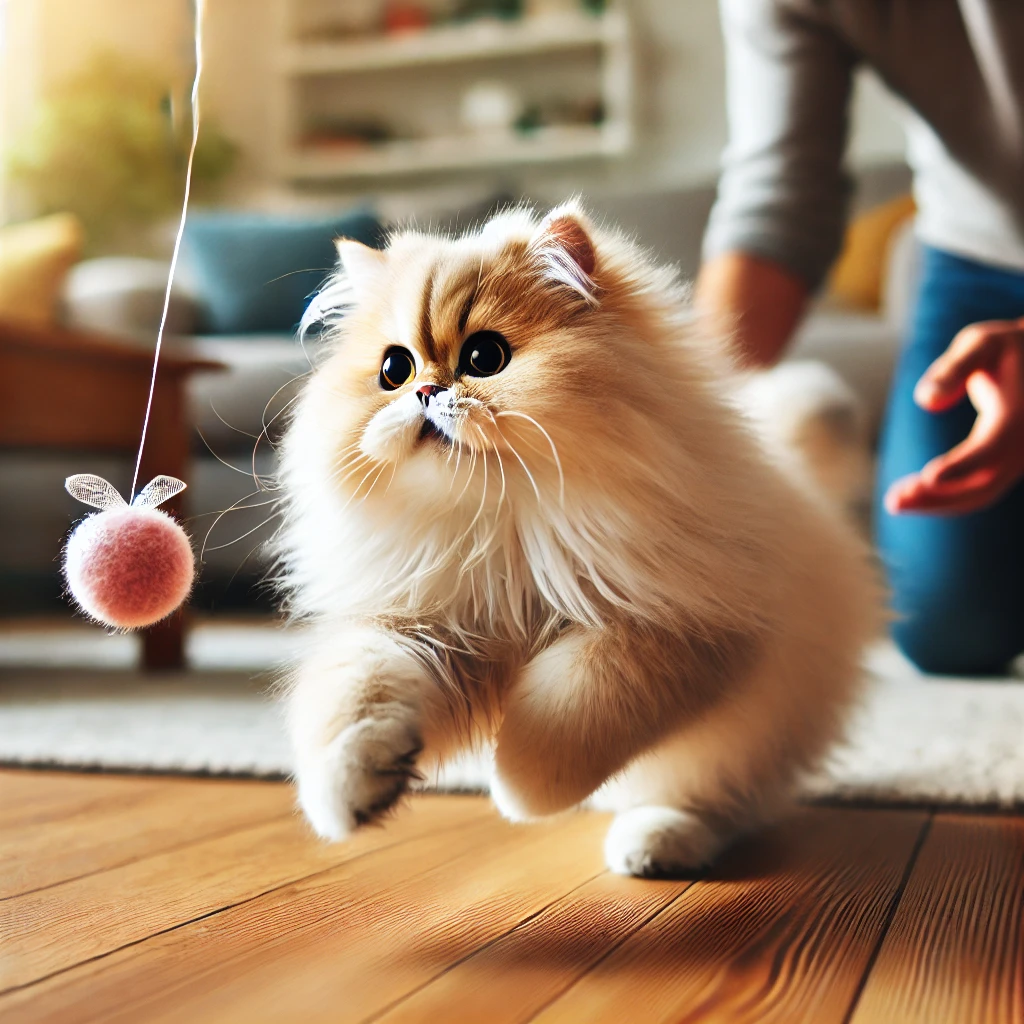
Comparing Aggression Levels Among Cat Breeds
When it comes to aggression levels among cat breeds, there is a wide range of personalities. Some breeds are more laid-back and docile, while others are known for their feisty and sometimes even aggressive behavior.
It’s important to note that each cat is an individual with its own unique personality, so generalizations about breed temperament should be taken with a grain of salt.
That being said, there are some trends that can be observed when comparing aggression levels among cat breeds.
One breed that is often cited as being particularly gentle and easy-going is the Persian cat. These fluffy felines are known for their sweet dispositions and love of lounging around the house.
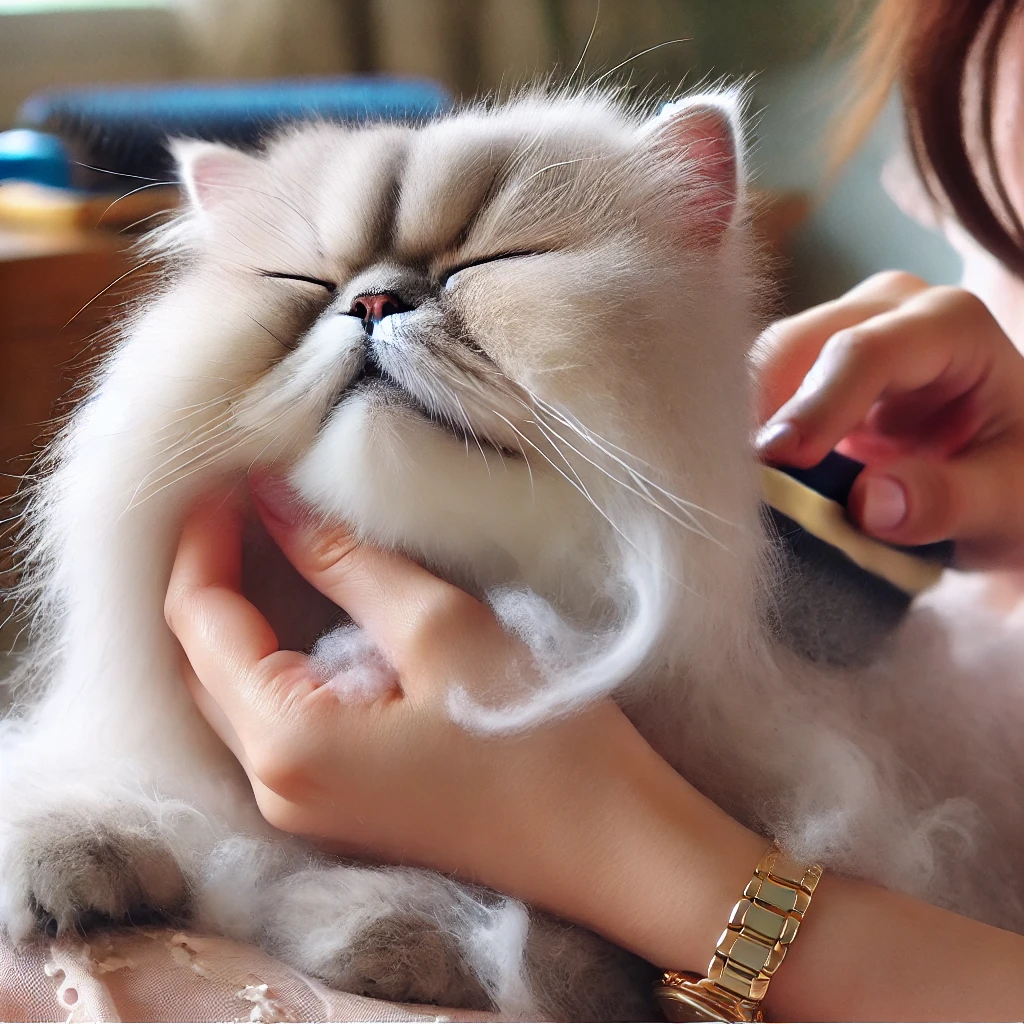
However, some people may wonder if this breed has any potential for aggression. When comparing Persians to other breeds, it’s clear that they tend to be less aggressive overall.
For example, Siamese cats are known for being vocal and demanding attention from their owners. They can also be quite territorial and may not get along well with other animals in the household.
On the other hand, Maine Coon cats are generally very friendly and sociable with both humans and other pets. Of course, there are exceptions to every rule.
Some Persians may exhibit aggressive behavior if they feel threatened or cornered. This could happen if they’re introduced to a new pet or person too quickly without proper socialization or if they feel like their territory is being invaded.
It’s also worth noting that any cat can become aggressive if they’re not properly cared for or have underlying health issues that cause them pain or discomfort.
For example, a cat with an untreated urinary tract infection may lash out when handled because it hurts to be touched.
Overall, while Persians may not be completely immune to displaying aggressive behavior in certain situations, they do tend to have lower levels of aggression compared to some other breeds.
It’s important to remember that each cat is an individual with its own unique personality, so it’s always best to approach any new pet with caution and respect.
With proper care and attention, a Persian cat can be a loving and loyal companion for many years to come.
Final Thoughts: Are Persian cats Aggressive?
In conclusion, Persian cats are not inherently aggressive. Their personality traits are generally calm, affectionate, and docile.
Misconceptions about their behavior stem from a lack of understanding and experience with the breed.
It is important to note that aggression can be present in any cat breed, but it is not a defining characteristic of Persian cats.
Overall, Persian cats make wonderful pets for those seeking a laid-back companion. With proper care and attention, they can thrive in any household.
References:
1. Bradshaw J.W.S., Casey R.A., Brown S.L. (2012) The Behaviour of the Domestic Cat (2nd ed.). CABI Publishing: Wallingford.
2. Turner D.C., Bateson P.P.G. (2000) The Domestic Cat: The Biology of its Behaviour (2nd ed.). Cambridge University Press: Cambridge.
3. Ellis S.L.H., Rodan I., Carney H.C., Heath S.E., Rochlitz I.J., Shearburn L.D., Sundahl E., Westropp J.L.; American Association of Feline Practitioners; International Society of Feline Medicine (2013) AAFP and ISFM feline environmental needs guidelines.
4. Buffington C.A.T.; Westropp J.L.; Chew D.J.; Bolus R.R.; Clinical Evaluation of Environmental Enrichment for Cats Housed in an Animal Shelter; Journal of the American Veterinary Medical Association; 2006
5. Gourkow N.; Fraser D.; The effect of housing and handling practices on the welfare, behaviour and selection of domestic cats (Felis sylvestris catus) by adopters in an animal shelter; Animal Welfare; 2006.
6.American Society for the Prevention of Cruelty to Animals (ASPCA). (n.d.). Cat Behavior Problems: Aggression. Retrieved from https://www.aspca.org/pet-care/cat-care/common-cat-behavior-issues/aggression
7.Cat Fanciers’ Association (CFA). (n.d.). Breed Profile: Persian. Retrieved from https://cfa.org/breeds/breeds-p-r/persian/
8.PetMD. (2021). 5 Things to Know About Persian Cats.
